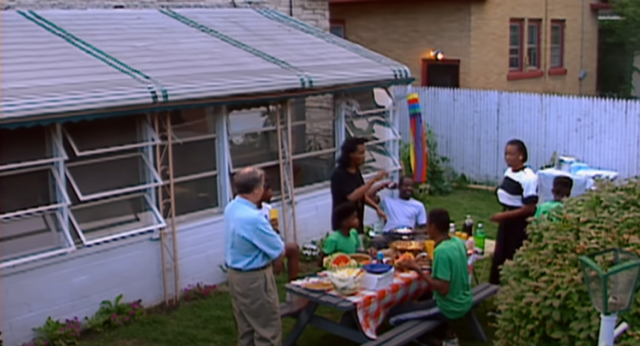
Financial Survival: Two Steps Forward, One Back
Hard work isn’t always enough.
For three decades, two families – the Neumanns and the Stanleys, one White, one Black – fought hard but failed to regain the financial security they had before being laid off from their good manufacturing jobs with benefits.
A powerful and heartbreaking PBS Frontline documentary that aired last week followed them from 1991 until earlier this year, as they moved from one low-paying job to the next, always striving for incremental improvements in their living standards.
The timing of this documentary seems particularly relevant in a U.S. election year in which inflation and rising inequality are central concerns for millions of voters. The two Milwaukee families allowed the reporters to capture intimate portraits not only of their extreme financial challenges but also the impact that the anguish of not having enough money had on their personal lives.
After Tony Neumann lost his factory job, every new job was a new form of sacrifice. He got a low-paying job on the night shift at one company and eventually moved up to the day shift. Later, he took a cut in pay for a job with benefits. His wife, Terry, determined to stay home with their children, tried to fill the gaps in Tony’s paychecks by selling beauty products door-to-door. But she spent more on the products than she was able to sell. She also briefly worked part-time in a school cafeteria for $6.91 an hour but eventually relented and got a commercial driver’s license so she could take a full-time job earning $7.50-an-hour with health insurance, which Tony didn’t have at the time. She had warehouse jobs, too, punctuated by an $8-an-hour job as an aide to a disabled child.
Fast forward to 2024. The couple has divorced, and their three children are working as a landscaper, an auto mechanic and a health insurance coder. Tony, now much older, does physical work as a handy man, installing plumbing and dry wall. Terry, who apparently got the house in the divorce that the couple had tried so hard to hold on to, has lost it in foreclosure. The buyer paid $38,000.
“We haven’t come very far,” Terry says, looking back on her professional life. But she said her children and grandchildren sustain her. “They’re my world.”
After Claude and Jackie Stanley both lost their union manufacturing jobs, their struggles as a Black couple with five children were different but no easier. Jackie tried for years to become a successful realtor, first as an employee for an agency and then by starting a business. She had to work doubly hard to close house sales for the relatively small commissions she could earn in a struggling Black neighborhood with crime and dropping property values.
For many years, her husband waterproofed basements for low pay. An attempt to open a home inspection business never got off the ground. Late in life, he snared a city job doing landscaping in the summer and collecting garbage in the winter. At age 60, he was still doing that physical labor but grateful to be earning $26,000 and benefits.
Now retired, the couple are dealing with Jackie’s diabetes. They live on Social Security and his small city pension. But their children are doing well, especially their oldest son, Keith, the first man on either side of the family to graduate high school. His parents paid for his college education but they couldn’t swing it for the other children. Keith heads a community development organization in North Carolina, and his parents are very proud of his many accomplishments.
Here is his take on what his family has gone through.
“I still believe in hard work but I will say that I think we are fooling ourselves if we believe that it’s only hard work,” he said. To succeed, he said, it’s often “about luck, about who you know. It’s about your zip code [and] that’s conflated in our society with, if you work hard, you will be successful. There’s a lot more to the equation.”
Squared Away writer Kim Blanton invites you to follow us @SquaredAwayBC on X, formerly known as Twitter. To stay current on our blog, join our free email list. You’ll receive just one email each week – with links to the two new posts for that week – when you sign up here. This blog is supported by the Center for Retirement Research at Boston College.
Comments are closed.







Good real life stories to read. My Dad was a union plumber, but before that he worked manual jobs for very low wages just to feed us. I was lucky to get a degree with good jobs and benefits as were my siblings.
Luck is very much a part of the hard work. And health. And community contacts. Having one’s children do better can make up for lots of lacks and give hope.
Thank you, Kim, for this heartbreaking and powerful story. Those of us who are more fortunate — often based on the zip code where we were born and other advantages our parents were able to confer on us — need to be constantly reminded of how difficult it is for so many, and that, even with a lifetime of hard work, it is often impossible to get ahead financially. As a society, we owe our citizens, children and families so much more. I hope we can keep finding ways to even the playing field.
I literally don’t understand the need to inject race into everything. Race had nothing to do with this article at all and yet it was still front and center. Weird.